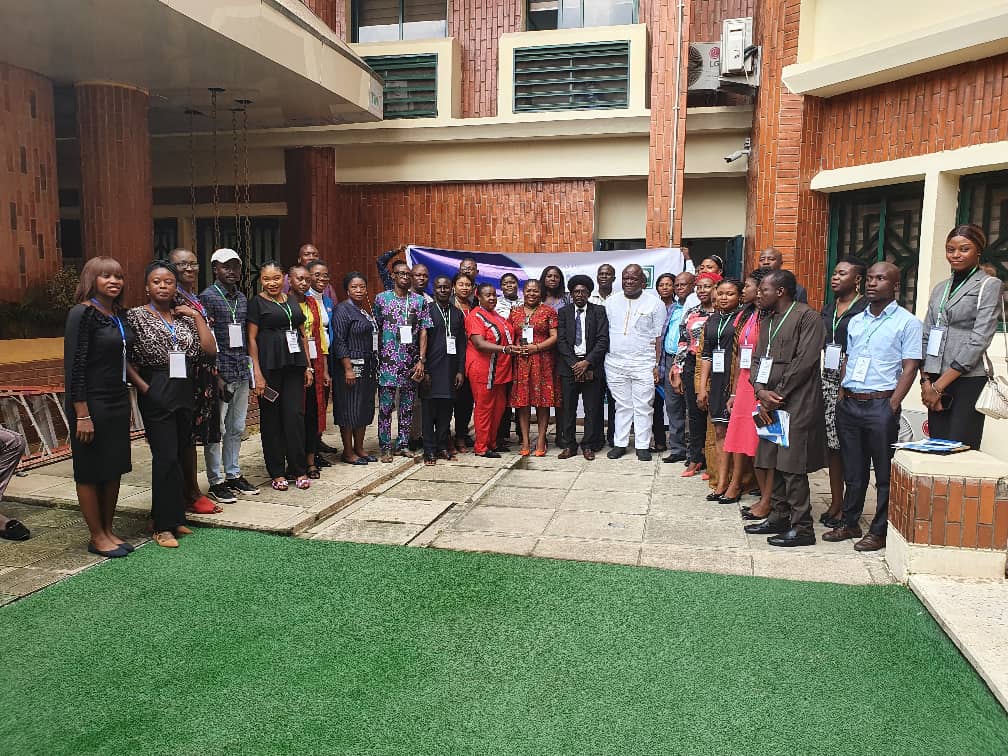
Safer-Media Initiative has in the past weeks blazed a path in the training of journalists, 23 female representing 45.1% and 28 male representing 54.9% of a total of 51 including 9 students of journalism who are now mentees under the SMI’s mentorship program were trained on investigative and data journalism by top notch resource persons.
The capacity building workshops under the theme: “Strengthening Grassroots Governance and Accountability Reporting” were held 6th and 7th July at the prestigious training facility of the Raw Materials Research and Development Council, Maitama-Abuja, also 13th and 14th July in Makurdi, the Benue State capital. A total of 39 journalists – 38 Abuja-based and 1 from Lafia-Nasarawa state participated in the workshop held in Abuja while 12 Benue-based journalists were trained in Makurdi.
In his opening remarks, the Executive Director and Chief Executive Officer of Safer-Media Initiative Mr. Peter Iorter said Investigative journalism is integral to national development as it holds authorities to account both in the public and private sector and ensures inclusivity of voices on issues. He added that the absence of investigative journalism affects accountability, while poverty ravages the people, cutting deadly paths across communities, especially in local communities.
The SMI’s CEO said enhancing the capacity of journalists has been a key aspect of his organisation’s initiative from the very beginning. He explained that the idea is rooted in the organisation’s strong commitment to reinforce the role of the media. “We believe strongly in the high value and importance of a vibrant and fearless media which for us is defined by its obligation to the truth, loyalty to citizens and playing the role of an independent monitor of power.” He said
Speaking further Iorter said the training workshops will equip participants with knowledge and skills essential in doing investigative stories as journalists will be capacitated with the right skillsets to uncover and cover under-reported issues, places and people around their communities, tell the untold stories of what is working and what’s not - expose lies, abuses of power and corruption in managing public resources, lack of transparency and accountability. He disclosed that after the training, SMI will provide a small funding covering basic logistics to select journalists with the most acceptable story pitches to produce investigative stories on issues around - Water, schools, public defecation, hospitals, health, infant and maternal mortality, roads, women, children, girls, PWDs, farming, conflict, violence, safety, poverty, factory workers, corporations, safe working spaces, discrimination, impunity, democracy deficits, regulatory failures, weak institution, etc. The journalists will be expertly mentored during their investigation.

It was a rewarding learning experience for the participants, following hands-on sessions with resource speaker - investigative journalism guru, Taiwo Hassan Adebayo, editor and head of Investigation and Data Desk at Premium Times. Taiwo who has twice been named “Nigeria’s Best Investigative Journalist” (2020 and 2021) by Diamond Award for Media Excellence has been part of the International Consortium of Investigative Journalists, ICIJ’s projects – including Panama Papers, FinCEN Files, and Pandora Papers – in addition to other cross-border journalism projects. The training sessions covered: Investigative Reporting and Story Building Techniques, Development and Data Journalism for Covering Community, Sources Handling in Investigative Reporting and Impact Generation for Investigative journalism. There were Story Lab and breakout sessions where participants were coached on pitching investigative stories and the most effective way to structure, present their stories and generate impact. The breakout sessions gave participants another opportunity to redesign their story pitches which are to be submitted to SMI, and may get funding support.
Another speaker, Professor Abiodun Adeniyi of the department of mass communication at Baze University, Abuja addressed the workshop theme at the preliminary session in Abuja.
Some of the participants spoke: Emmanuel Okereh, an editor with the Authority Newspaper said, “Given my exposure as a news editor for many years, I was surprised to pick up new things from the workshop.” Another participant, Dorcas Jonah of News Agency of Nigeria (NAN) said, “The training has equipped me with skills to do in-depth grassroots investigative reporting. I am excited and grateful to the organisers of this workshop; I hope Safer-Media would sustain such training opportunities for journalists.”
The workshops held in Abuja and Makurdi are among interventions within SMI's mandate to implement the Strengthening Journalism – Independence, Capacity and Presence (SJ-ICAP) Project under the Collaborative Media Engagement for Development, Inclusivity and Accountability Project (The Collaborative Media Project) of the Wole Soyinka Centre for Investigative Journalism (WSCIJ), with support from the MacArthur Foundation. Among other objectives, the project aims to step up professional news coverage and investigative reporting, contribute to improving the sustainability capacity of journalists to perform their duty of holding government accountable (specifically at the sub-national level – state and local) as stated in the Nigerian Constitution.
